SLOVAKIA has its first-ever official candidate for UN secretary general after Miroslav Lajčák, the longtime foreign minister, was confirmed at the government’s May 25 session as an official nominee and set to attend an ‘informal dialogue’ at United Nations headquarters in New York on June 7.
“We are offering an exceptionally quality candidate,” Prime Minister Robert Fico said upon announcing the nomination, citing Lajčák’s good reputation in diplomatic circles at home and internationally.
President Andrej Kiska and Parliament Speaker Andrej Danko also endorsed Lajčák.
“I often witness how our international partners very attentively listen to [Lajčák] and how immensely they value his opinion,” Kiska said.
The support of the government and the president is an important strength for Lajčák in the race, because the UN is an intergovernmental organization “and candidates with the support of their respective government will have an advantage ahead of candidates who don’t enjoy such support”, Alexander Duleba of the Slovak Foreign Policy Association told The Slovak Spectator.
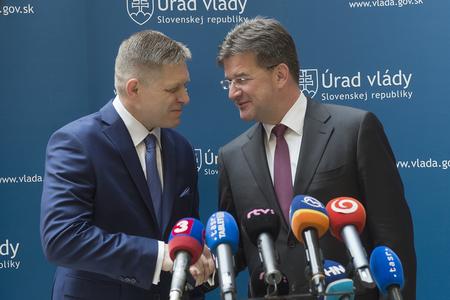
Lajčák is the 11th official candidate running for the post which will be vacant after the term of the current UN Secretary General Ban Ki-moon expires on December 31 this year. As of January 2017, the UN will be headed for the next five years by the ninth UN Secretary General.
“It’s a challenge for a professional diplomat, and one doesn’t run away from such opportunities,” Lajčák said earlier this month, as quoted by the TASR newswire. Now he says that the official candidacy is an honour but also a responsibility for him.
Strengths and weaknesses
Experts on international relations also cite Lajčák’s strong international reputation as among his strengths in the race for the post.
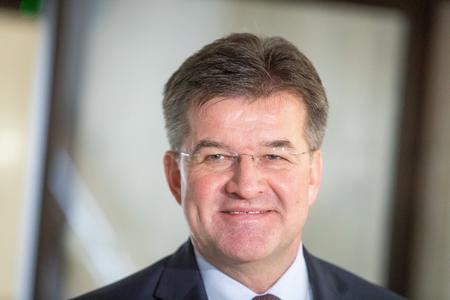
Duleba pointed to Lajčák’s work in the western Balkans in 2001-2009. He recalls Lajčák’s time as the special envoy of the EU for mediating the conflict between Serbia and Montenegro. Also thanks to Lajčák and his team’s efforts Montenegro emerged in 2006 as an independent state, the first example of a successful peaceful solution of a conflict in western Balkans since the war in 1990s.
“Something like does not get forgotten in the international diplomacy,” Duleba said.
With his experience and the good reputation of Slovak diplomacy in general, Lajčák stands out from the candidates from the Western Balkans or Moldova, and seems acceptable for both Russians and Americans as a possible alternative candidate, political analyst Dariusz Kałan told The Slovak Spectator.
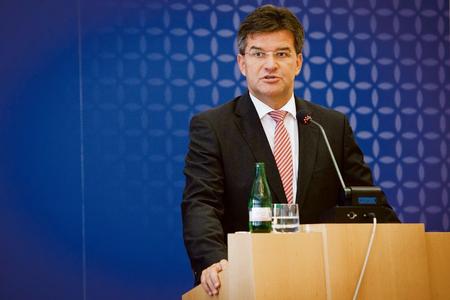
“His decision to announce the candidacy so late may pay off too; he looks fresher now, and it is unlikely he would take such a risk if he didn’t informally sound out his chances,” Kałan said.
Involvement in politics
Lajčák’s current term as foreign minister is his third. All three times he was nominated by the Smer party, and even though he never joined the party, he appeared among the prominent figures of its campaign, particularly before the most recent parliamentary election in early March 2016.
Duleba however does not see his involvement in the national politics as a problem, as there are several former and current members of governments who also participated in political campaigns in their countries.



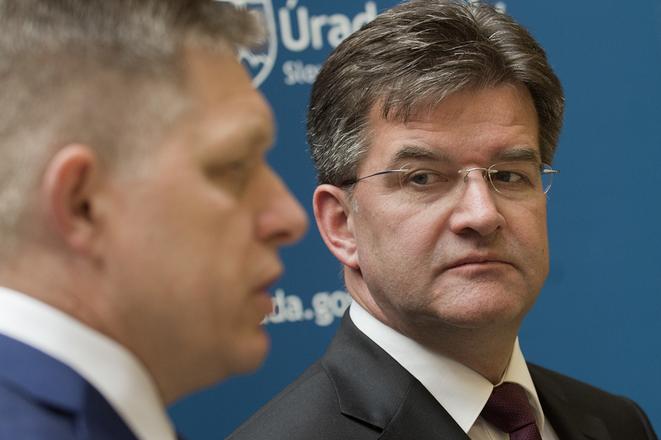 Government of PM Robert Fico (left) endorses Lajčák as its official candidate. (source: TASR)
Government of PM Robert Fico (left) endorses Lajčák as its official candidate. (source: TASR)
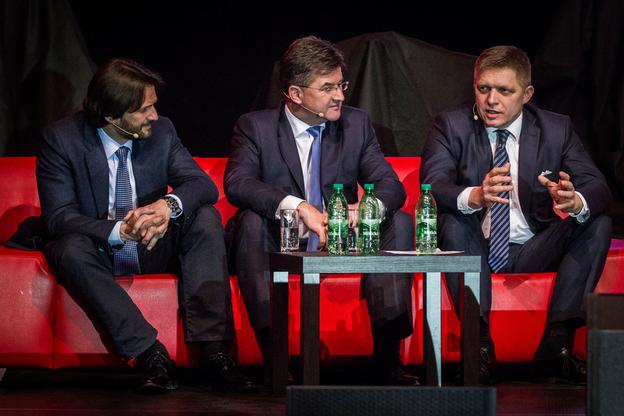 Lajčák is a popular politician. Here during an election meeting of Smer in March 2016, with Interior Minister Robert Kaliňák (left) and PM Robert Fico (right). (source: Sme - Jozef Jakubčo)
Lajčák is a popular politician. Here during an election meeting of Smer in March 2016, with Interior Minister Robert Kaliňák (left) and PM Robert Fico (right). (source: Sme - Jozef Jakubčo)